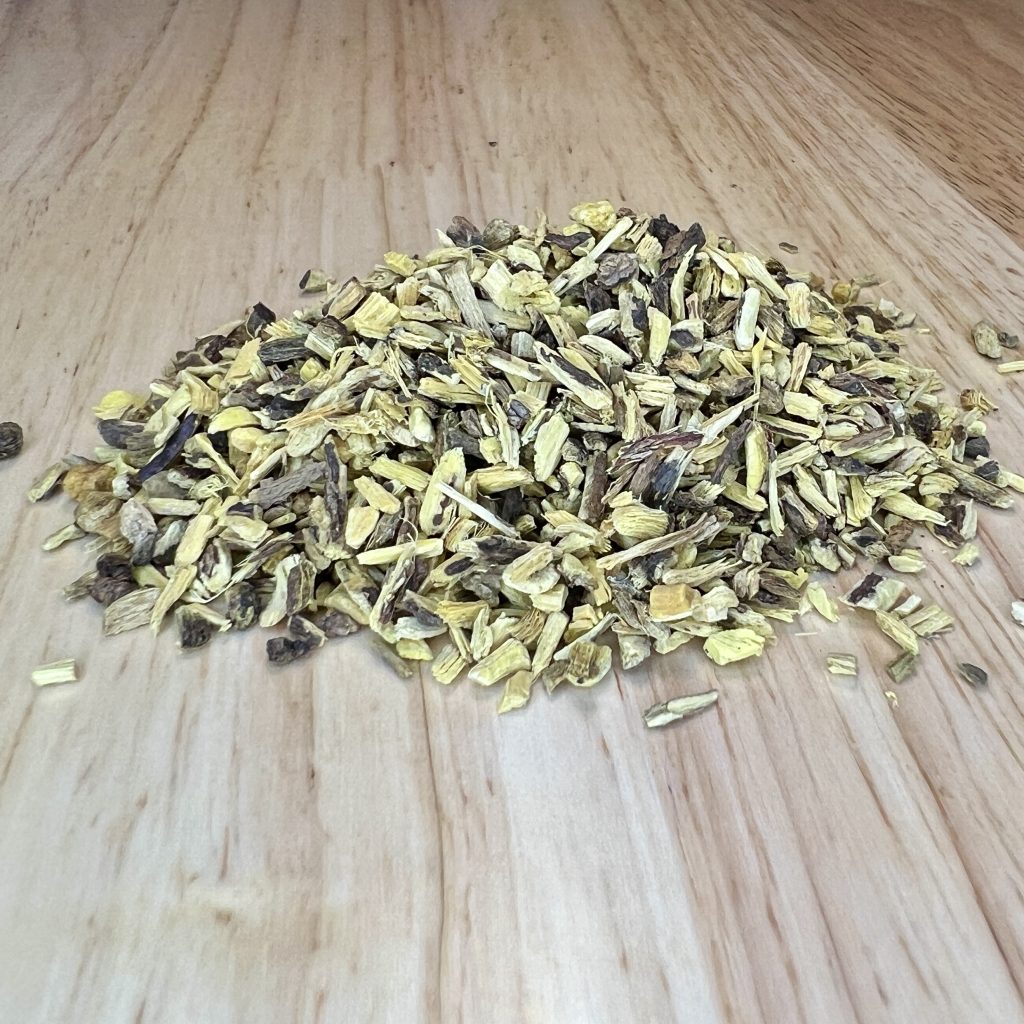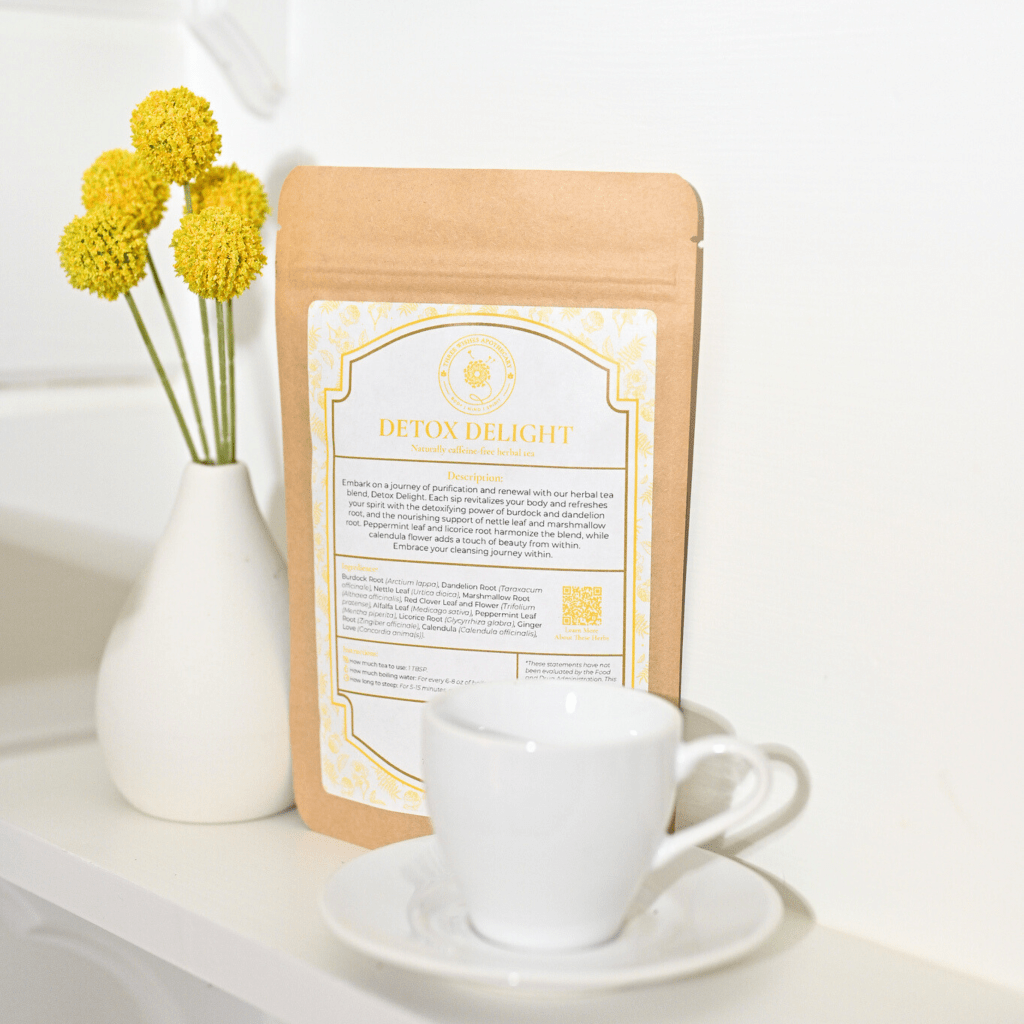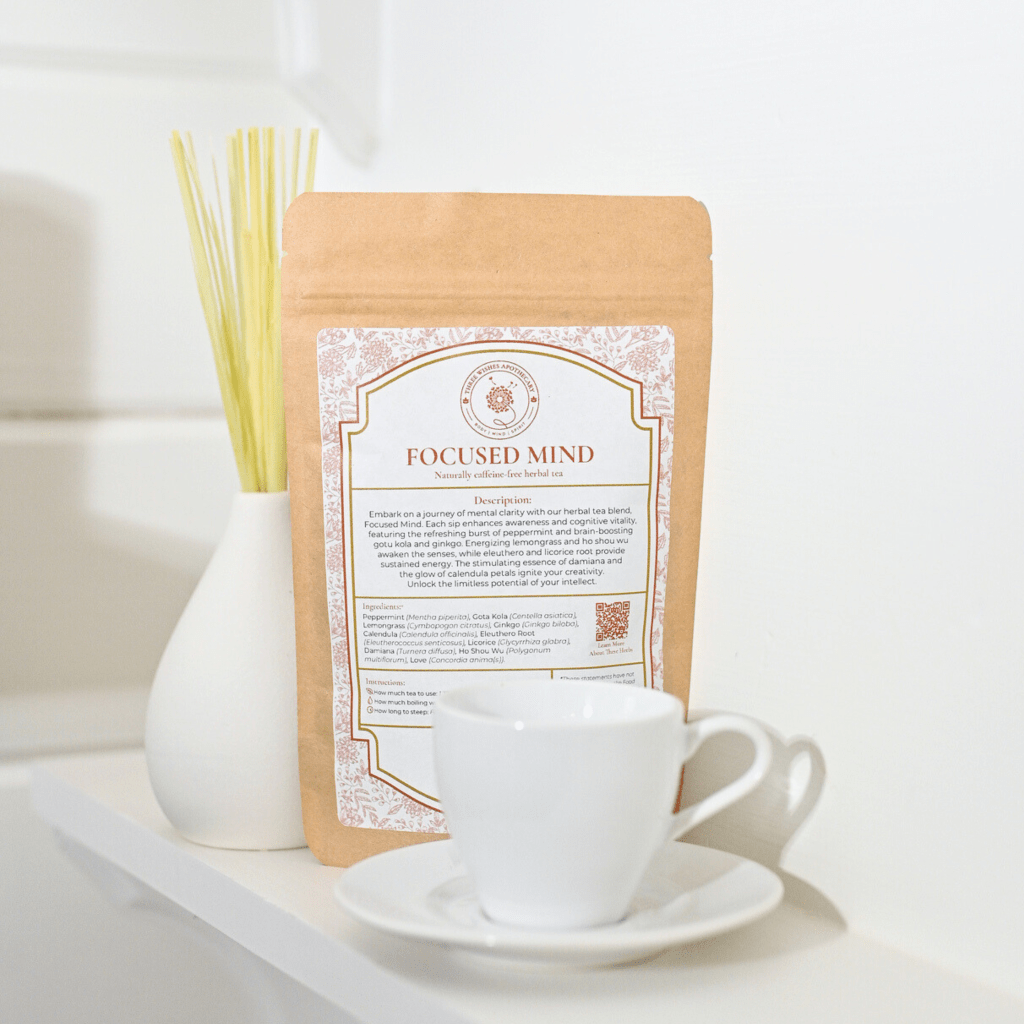Medicinal Action

Lungs Moisturizer
Lung trophorestoratives work to repair and rejuvenate lung tissue, making them ideal for chronic respiratory issues, post-infection recovery, or damage caused by irritants such as smoking or pollution. These substances help restore the integrity and vitality of the lungs while addressing inflammation, weakness, or scarring. Common herbal examples include mullein (Verbascum thapsus), elecampane (Inula helenium), and plantain (Plantago spp.). Such herbs are often paired with lung tonics to provide both immediate support and long-term restoration of respiratory health.

Products containing Lungs Moisturizer
Discover our collection of artisanal salves for holistic healing.
Licorice Root (Glycyrrhiza glabra)
Carefully sourced, always organic, and packaged by hand, our herbs are sold by the ounce. To order more, adjust the quantity in 1 oz increments.
Example: Quantity 4 = 4 ounces.
Detox Delight Tea Blend
A naturally caffeine-free herbal tea crafted to refresh your spirit and support your body’s natural cleansing process. Packed with detoxifying roots, nourishing leaves, and soothing herbs, this blend is your companion on a journey of renewal and vitality.
Focused Mind Tea Blend
A naturally caffeine-free herbal tea crafted to enhance mental clarity and cognitive vitality. With refreshing peppermint, brain-boosting gotu kola and ginkgo, and energizing lemongrass, this blend awakens the senses and inspires creativity.
Monographs with the (Lungs Moisturizer) function
Eleuthero (Eleutherococcus senticosus)
In traditional Chinese medicine (TCM), Eleuthero has been used for over 2,000 years to fortify Qi and support the Spleen and Kidney meridians. It was traditionally used to increase stamina, combat fatigue, and strengthen the immune system, especially during recovery from illness. In Russia, Eleuthero gained prominence during the Soviet era for its ability to enhance athletic performance, mental clarity, and stress resilience.
Current Uses:
Today, Eleuthero is widely used as an adaptogen, helping the body adapt to stress and improve endurance and energy. It is commonly used for:
- Increasing energy and stamina during periods of fatigue or physical exertion
- Supporting immune function, particularly in times of stress or recovery
- Balancing stress responses, promoting mental clarity and focus
- Enhancing athletic performance and aiding in post-exercise recovery
- Improving overall vitality and resilience to environmental stressors
*To learn more about this plant’s traditional and modern uses, energetics, and potential contraindications, visit our Materia Medica section and search for this herb by name. There, you’ll find detailed notes on safe use and preparation methods.
Ashwagandha Root
A deeply restorative adaptogen, Ashwagandha Root (Withania somnifera) has been treasured in Ayurvedic tradition for centuries for its ability to strengthen resilience and restore balance. Known as a “rasayana” or rejuvenative tonic, it supports the body’s natural capacity to adapt to life’s daily stressors and maintain equilibrium across the nervous, endocrine, and immune systems.
This tincture offers a stabilizing, grounding energy — not stimulating, but harmonizing. It helps moderate the body’s stress response, nourishing depleted reserves and supporting healthy adrenal function over time.
Crafted through a 60% organic cane ethanol extraction to preserve its full spectrum of constituents, this formula embodies the adaptogenic principle described by herbalist David Winston: to normalize rather than force, to strengthen rather than overstimulate, and to build vitality that endures.
Like the resilient root itself, Ashwagandha invites you to slow your rhythm, find your center, and cultivate calm strength from within.
Dosage
Take 2–4 mL (approximately 40–80 drops) up to three times daily in a small amount of water or directly on the tongue.
Best taken consistently over time for cumulative benefit, particularly during periods of emotional strain, fatigue, or high output.
Pairs well with restorative practices such as breathwork, yoga nidra, journaling, or quiet moments in nature.
Cautions
Generally well-tolerated. Consult a qualified healthcare provider before use if you are:
-
Pregnant or nursing
-
Sensitive to plants in the nightshade (Solanaceae) family
-
Managing hemochromatosis (excess iron) or hyperthyroid conditions
-
Taking sedatives or thyroid medications
Discontinue use if any adverse effects occur.




